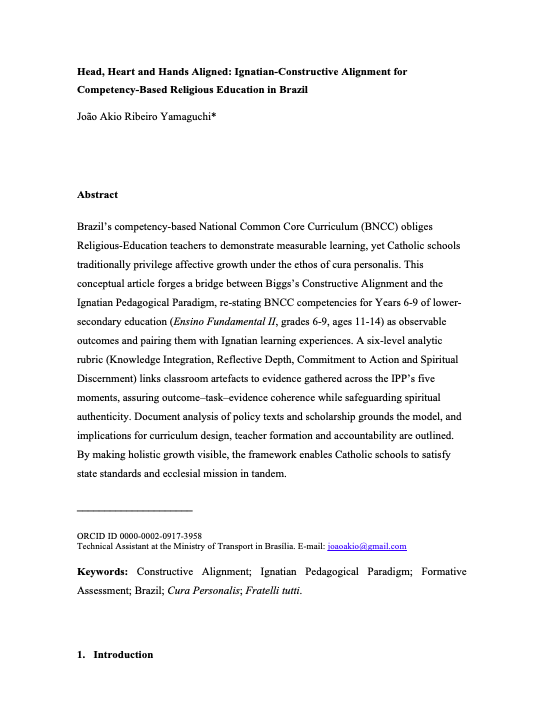Aligning Head, Heart and Hands: Constructive Alignment Meets Ignatian Pedagogy in Brazilian Religious Education
Main Article Content
Abstract
Brazil’s 2017 National Common Core Curriculum (Base Nacional Comum Curricular - BNCC) requires competency-based assessment even for Religious Education, yet Catholic schools often rely on affective, non-evidenced appraisal rooted in their charism of cura personalis. This theoretical paper synthesises John Biggs’ Constructive Alignment (CA) framework with the Ignatian Pedagogical Paradigm (IPP) to show how formative assessment can be simultaneously data-rich and spiritually attuned. BNCC competencies (habilidades) for Years 6-9 are rewritten as observable learning outcomes, each paired with Ignatian learning experiences and assessed through a six-level analytic rubric whose criteria—Knowledge Integration, Reflective Depth, Commitment to Action and Spiritual Discernment—make holistic growth visible. The rubric aligns classroom artefacts with evidence types (diagnostic, performance, metacognitive, transfer, cumulative) gathered across the IPP’s five moments, meeting CA’s demand for outcome–task–evidence coherence while honouring the Gospel-centred call to social friendship in Fratelli tutti. Pedagogical, curricular and policy implications are discussed, alongside a professional-development agenda that blends assessment literacy with Ignatian formation. The model offers Catholic schools a replicable pathway to satisfy state accountability and ecclesial mission in tandem.

